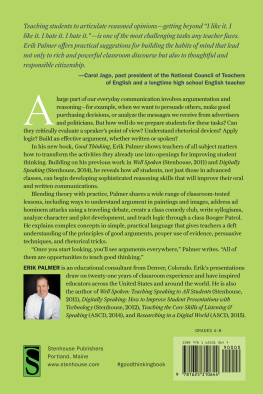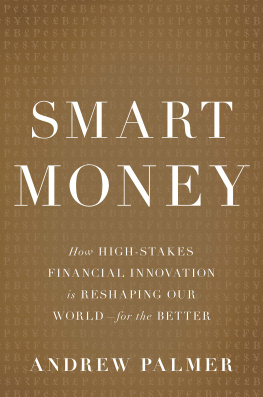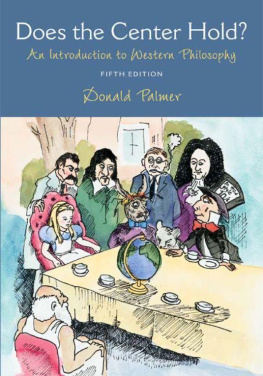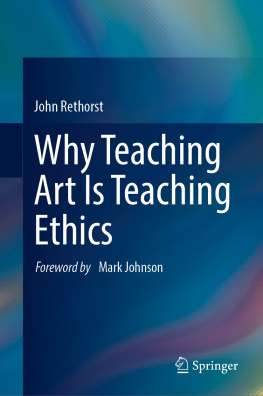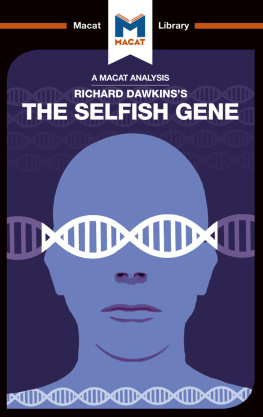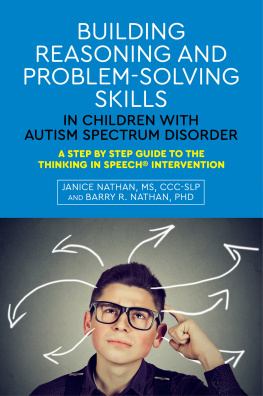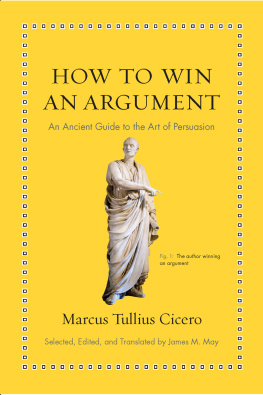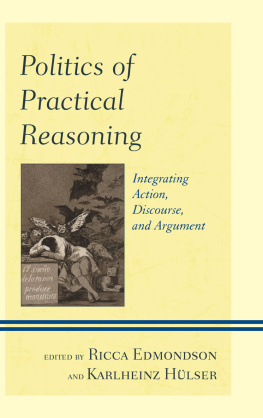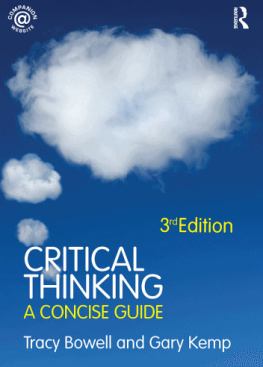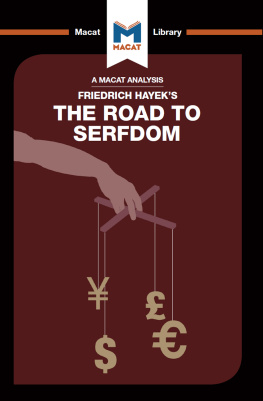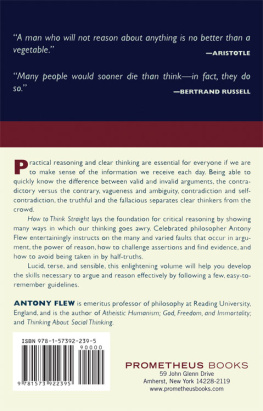Palmer - Good thinking - teaching argument, persuasion, and reasoning
Here you can read online Palmer - Good thinking - teaching argument, persuasion, and reasoning full text of the book (entire story) in english for free. Download pdf and epub, get meaning, cover and reviews about this ebook. year: 2016, publisher: Stenhouse Publishers, genre: Home and family. Description of the work, (preface) as well as reviews are available. Best literature library LitArk.com created for fans of good reading and offers a wide selection of genres:
Romance novel
Science fiction
Adventure
Detective
Science
History
Home and family
Prose
Art
Politics
Computer
Non-fiction
Religion
Business
Children
Humor
Choose a favorite category and find really read worthwhile books. Enjoy immersion in the world of imagination, feel the emotions of the characters or learn something new for yourself, make an fascinating discovery.
- Book:Good thinking - teaching argument, persuasion, and reasoning
- Author:
- Publisher:Stenhouse Publishers
- Genre:
- Year:2016
- Rating:4 / 5
- Favourites:Add to favourites
- Your mark:
- 80
- 1
- 2
- 3
- 4
- 5
Good thinking - teaching argument, persuasion, and reasoning: summary, description and annotation
We offer to read an annotation, description, summary or preface (depends on what the author of the book "Good thinking - teaching argument, persuasion, and reasoning" wrote himself). If you haven't found the necessary information about the book — write in the comments, we will try to find it.
Palmer: author's other books
Who wrote Good thinking - teaching argument, persuasion, and reasoning? Find out the surname, the name of the author of the book and a list of all author's works by series.
Good thinking - teaching argument, persuasion, and reasoning — read online for free the complete book (whole text) full work
Below is the text of the book, divided by pages. System saving the place of the last page read, allows you to conveniently read the book "Good thinking - teaching argument, persuasion, and reasoning" online for free, without having to search again every time where you left off. Put a bookmark, and you can go to the page where you finished reading at any time.
Font size:
Interval:
Bookmark:
Thank you for purchasing this Stenhouse e-book; we appreciate the opportunity to help you become an even more effective teacher. This e-book is for your own individual use: you may print one copy for your own personal use and you can access your e-book on multiple personal devices, including computers, e-readers, and smartphones. However, you cannot make print or digital copies to share with others, nor may you post this e-book on any server, website, or other digital or online system. If you would like permission to distribute or post sections of this e-book, please contact Stenhouse at permissions@stenhouse.com.
If you would like to see a full list of the e-books Stenhouse offers, please visit us at www.stenhouse/allebooks
THINKING
TEACHING ARGUMENT, PERSUASION, AND REASONING

ERIK PALMER

Stenhouse Publishers
www.stenhouse.com
Copyright 2016 by Erik Palmer
All rights reserved. This e-book is intended for individual use only. You can print a copy for your own personal use and you can access this e-book on multiple personal devices (i.e. computer, e-reader, smartphone). You may not reproduce digital copies to share with others, post a digital copy on a server or a website, make photocopies for others, or transmit in any form by any other means, electronic or mechanical, without permission from the publisher.
Every effort has been made to contact copyright holders and students for permission to reproduce borrowed material. We regret any oversights that may have occurred and will be pleased to rectify them in subsequent reprints of the work.
Library of Congress Cataloging-in-Publication Data
Names: Palmer, Erik, 1953
Title: Good thinking : teaching argument, persuasion, and reason / Erik Palmer.
Description: Portland, Maine : Stenhouse Publishers, 2016. | Includes bibliographical references.
Identifiers: LCCN 2015044683 (print) | LCCN 2015045259 (ebook) | ISBN 9781625310644 (pbk. : alk. paper) | ISBN 9781625310651 (ebook)
Subjects: LCSH: Thought and thinking--Study and teaching. | Reasoning--Study and teaching. | Persuasion (Rhetoric)--Study and teaching.
Classification: LCC LB1590.3.P325 2016 (print) | LCC LB1590.3 (ebook) | DDC 370.15/2--dc23
LC record available at http://lccn.loc.gov/2015044683
Book design by Blue Design, Portland, Maine (www.bluedes.com)
To my debate coaches at Greendale High School and Southern Methodist University for their contributions to my lifelong obsession with good thinking
W hen I started this book, I went to the Twitterverse to find out how teachers were teaching argument and reasoning. It seems that many brilliant teachers have Twitter accounts and use those to connect with others who share a commitment to becoming better, more effective educators. Quite a few were willing to assist me. They covered a wide range of grade levels and subject expertise. They included teachers from around the globefrom Cathy, five miles away, to Teresa, a teacher at an international school in Hanoi. I was amazed at their enthusiasm and desire to help. Several of these teachers shared activities you will discover as you read the book; others contributed ideas to help me verify that I was on the right track. I thank all of them: Jessica Lifshitz, Colleen Kires, Erika DeShay, Cathy Walker-Gilman, Mark Bowden, Bill McBride, Lindsay Metcalfe, Paul Solarz, Kaitlyn Fischer, Sandy King, Donald Kreienkamp, Laura Wagenman, Megan Kelly, Andrew Smith, Paul Bogush, Dave Stuart Jr., and Teresa Winterstein. This book is better because of you.
I also found Sandy Otto on Twitter. Sandy has a few educators and authors that she calls edu-heroespeople who have inspired her and positively influenced her teaching. Sandy is my edu-hero. She is passionate about education and constantly striving to be better, though it is clear, after visiting her classroom, that she is already a master teacher. I bounced ideas off her to get a practitioners view of things. She tested lessons so I could see my ideas in action. She offered wonderful suggestions and encouragement. And she had a wonderful openness to new ideas. Education needs more Sandy Ottos. Her contributions to this book are invaluable.
For a third time, I find myself thanking Holly Holland, my editor extraordinaire. She made Well Spoken better, she made Digitally Speaking better, and she made this book much better. Holly helped me brainstorm the ideas and structure of the book before a word was written, and polished up the manuscript after all the words were written. She is a great editor and friend.
My wife, Anne, is mentioned in the book a few times. She is a fantastic teacher and artist. Her lessons show up in the text, and she drew
Introducing Good Thinking
N ot everything is an argument!
Those were the exasperated words of my father. You see, I joined the debate team in high school. The debate team profoundly changed my life for the better. Debate involves researching, collaborating with partners, thinking critically, and performing under stress. Of course, debate also demands strong speaking skills, and as readers of my other books know, I am passionate about developing oral communication skills in all students. But the part that changed my fathers life for the worse was that debate is also about reasoning well. I never quit practicing.
Yes, Dad, I could take out the garbage, but lets look at that more closely. First of all, perhaps you are unaware of the womens lib movement, but there is no reason why certain jobs should always fall to males. Why not ask one of my sisters to do this? Additionally, you lead a sedentary life in an office. Research indicates that exercise is good for health, and though it is only mild, taking out the garbage does provide some exercise and would be good for you. I care about you and want what is best for your health.
Perhaps you can understand his exasperation.
He was no doubt correct: not everything is an argument. However, many definitions of the word argument contain phrases such as suggesting reasons to persuade others. If we use that meaning, it is certainly true that a large part of our communication is argument. We often try to convince people that an idea should be adopted. For example, we try to convince
a spouse that its a good night for pizza instead of leftovers.
the principal that more passing time is needed for students moving through hallways between classes.
the staff that the new initiative is good for everyone.
our students that they should work hard on the assignment.
our children that they should clean their rooms.
the store personnel that they should honor the coupon even though it is one day past expiration.
Many times a day, we try to reason with others. Ill wager that at least once a day you think, What? Thats crazy! They are way off! when you see or hear something that you think is unreasonable. Not a day goes by without us calling on our reasoning skills. We analyze the messages we receive. We reason with others. We even reason with ourselves: Should I eat that doughnut? Explain, conscience.
How well do students think?
We usually answer that by pointing to some kind of score: Kim got all the answers right on the quiz; Roberta correctly edited her paper. They must have done some good thinking. What really went on, though? Kim did a nice job of
Next pageFont size:
Interval:
Bookmark:
Similar books «Good thinking - teaching argument, persuasion, and reasoning»
Look at similar books to Good thinking - teaching argument, persuasion, and reasoning. We have selected literature similar in name and meaning in the hope of providing readers with more options to find new, interesting, not yet read works.
Discussion, reviews of the book Good thinking - teaching argument, persuasion, and reasoning and just readers' own opinions. Leave your comments, write what you think about the work, its meaning or the main characters. Specify what exactly you liked and what you didn't like, and why you think so.

